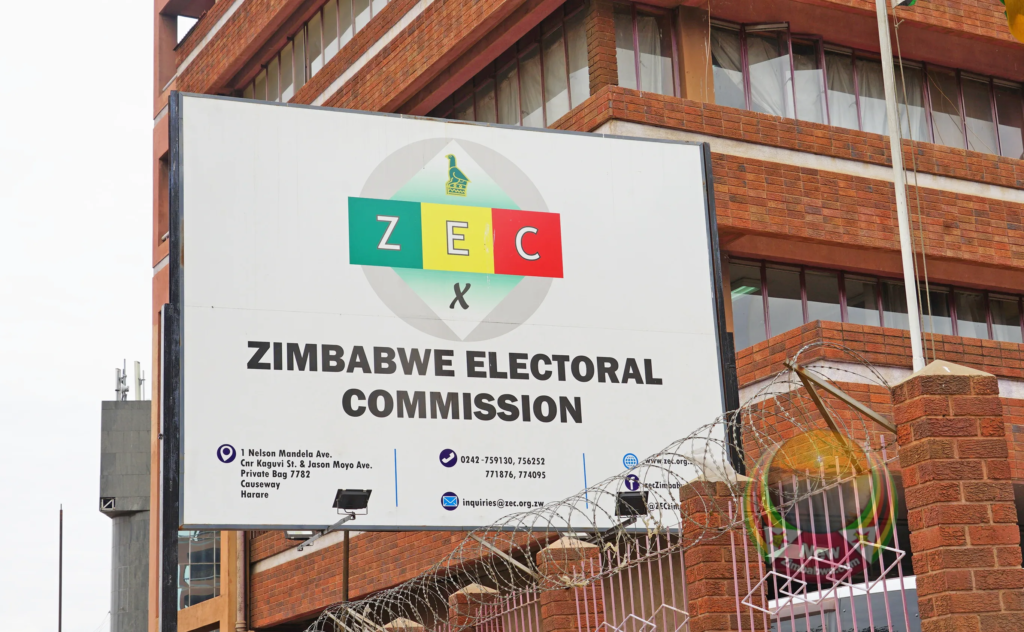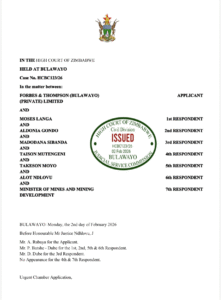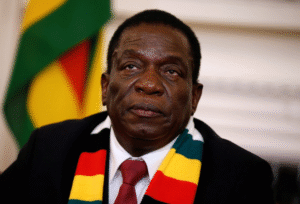THE POLITICS OF COERCION: HOW THE ZIMBABWE ELECTORAL COMMISSION HAS BECOME THE PUPPET OF ZANU-PF

In Zimbabwe, the sanctity of democratic procedures is persistently under siege. Nowhere is this more visible than in the operations of the Zimbabwe Electoral Commission (ZEC), an institution that has ostensibly failed to uphold the principles of free, fair, and impartial elections. The critical failure of the ZEC to produce and disseminate a credible voters’ roll stands as a stark testament to its subjugation to the ruling ZANU-PF, a party often accused of weaponizing state institutions to maintain its grip on power.
The ZEC, as an electoral commission, is supposed to be an independent institution, tasked with conducting elections in a manner that ensures the right of citizens to participate in government. However, its inability to produce a comprehensive, transparent, and verifiable voters’ roll has exposed an underbelly of systemic manipulation. A voters’ roll is the cornerstone of any democratic election; its absence creates fertile ground for fraud, manipulation, and, ultimately, the erosion of democratic norms.
The ZANU-PF, in power since the country’s independence in 1980, has been widely accused of infiltrating and controlling key state institutions like the ZEC. This purported influence is believed to be used in undermining opposition and maintaining an ironclad grip on power. The non-release of the voters’ roll becomes, in this context, less an administrative failure and more a tactical maneuver to handicap the opposition and stifle the voices of dissent.
Multiple elections have been marred by accusations of vote-rigging, voter intimidation, and the suppression of opposition, all facilitated by the ZEC’s lack of transparency and accountability. Reports from the 2008 and 2018 general elections, for instance, cited widespread irregularities and inconsistencies, indicative of a compromised electoral process. It appears that the ZEC, instead of being a custodian of democracy, has turned into a tool of political coercion for the ruling ZANU-PF.
International bodies, including the European Union and African Union, have repeatedly flagged the opaque operations of the ZEC. Their calls for the respect of democratic norms, including the immediate release of the voters’ roll, have fallen on deaf ears. Even the Zimbabwean courts, another institution allegedly controlled by the ruling party, have failed to act decisively against the ZEC’s ongoing negligence.
Notably, the ZANU-PF has been adept at cloaking their maneuvers under a guise of legality, using constitutional amendments and legislative adjustments to tighten their control over state institutions. The weaponization of the ZEC is, in many ways, symptomatic of this strategy.
The ZEC’s failure to uphold its constitutional mandate does more than compromise elections; it undermines Zimbabwe’s democracy at its core. A reliable and transparent voters’ roll is not just a list of names; it is a guarantee of citizens’ political rights and the integrity of democratic processes. By failing to produce this essential democratic tool, the ZEC has effectively disempowered millions of Zimbabweans and cemented the dominance of the ZANU-PF.
The inability of the ZEC to produce a comprehensive and credible voters’ roll underscores the institution’s governance by the gun, led by the ruling ZANU-PF. This situation lays bare the stark reality of Zimbabwe’s flawed democracy, where state institutions are seen as mere extensions of the ruling party. As long as the ZEC remains a puppet in the hands of ZANU-PF, the dream of a truly democratic Zimbabwe remains an elusive ideal, forever just beyond reach.





